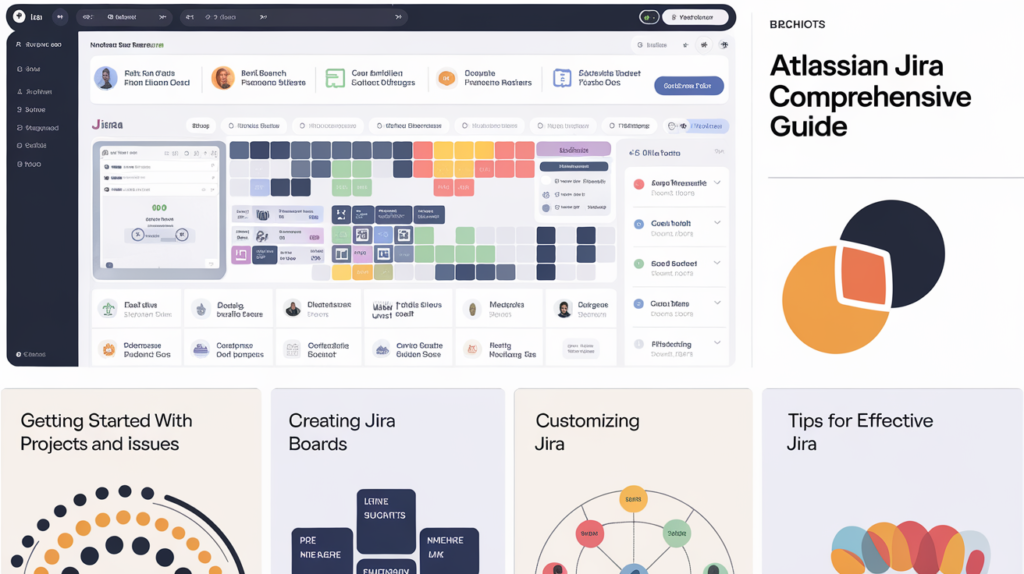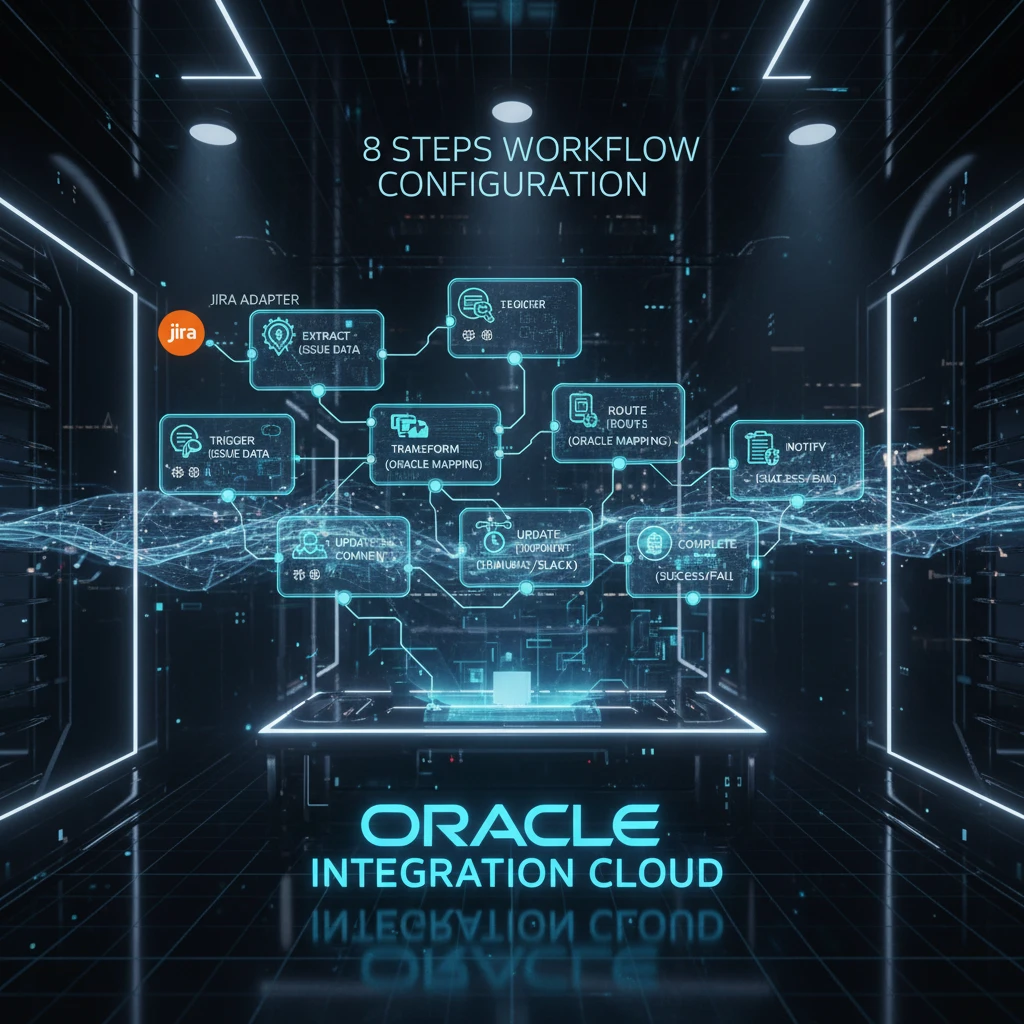
Quick Resume
This article explains how Jira empowers teams through customizable agile workflows, robust issue tracking, and seamless integrations—making it a vital tool for improving project visibility, collaboration, and efficiency across organizations of any size.
Table Of Content
General Project Management with Jira
Jira can be an invaluable tool for general project management across various departments. It offers a consistent project experience and customizable workflows. Teams from different business areas can adopt Jira to manage their projects efficiently. The platform’s flexibility makes it suitable for managing a wide range of project types, from software development to business process management.
Stakeholder Engagement in Jira
Stakeholders, those who need to be updated on project progress, can also benefit from using Jira. With the Premium and Enterprise plans, stakeholders can view updates without needing an agent license. This feature is especially useful for keeping non-technical stakeholders in the loop while ensuring the team stays focused on their tasks.
Why Do People Use Jira?
Jira is widely used for several compelling reasons:
Agile Project Management
One of the most notable features of Jira is its support for agile project management. Whether using Scrum or Kanban, Jira provides a framework for software development teams to plan, track, and release software efficiently. The platform’s adaptability makes it a go-to tool for teams employing agile methodologies.
Bug and Issue Tracking
Another common use of Jira is for bug and issue tracking. In the fast-paced world of software development, it is essential to track bugs and issues in a streamlined manner. Jira helps teams report, assign, and prioritize tasks, ensuring that nothing slips through the cracks.
Customization and Scalability
Jira is incredibly flexible and scalable, which is one of the reasons it’s favored by both small teams and large enterprises. It supports different deployment options, such as cloud and data center, and allows for extensive customization through apps available in the Atlassian Marketplace.
Integration and Collaboration
Jira integrates seamlessly with various other tools such as Confluence, Bitbucket, and Power BI. These integrations enhance collaboration among team members, creating a centralized workspace for improved workflows and communication.
Reporting and Analytics
Jira’s built-in reporting and analytics tools provide real-time insights into a project’s progress. Teams can generate comprehensive reports that highlight bottlenecks, team performance, and overall project status. This feature makes it easier to stay on top of tasks and milestones.
Mobile Accessibility
Jira’s mobile app adds another layer of flexibility. Team members can access and manage their work on the go, ensuring that projects continue to move forward regardless of location. This feature is perfect for teams working remotely or in various time zones.
Customizable Workflows
Jira offers customizable workflows, allowing teams to modify and automate processes to suit their unique needs. This flexibility is a key reason why teams find Jira so effective in aligning with their processes, standards, and best practices.
Issue Tracking and Management
Jira excels at issue tracking and management. Users can create custom fields, labels, and filters, which makes it easier to organize tasks, prioritize them, and monitor their progress over time.
Can We Use Jira for Free?
Yes, Jira offers a free version, ideal for smaller teams. The free plan supports up to 10 users and includes 2GB of storage, with Community Support available. While the free version allows you to create workflows, manage issues, and collaborate, it comes with some limitations compared to the paid plans:
- User Roles: All users are product admins, which means they have full system access.
- Permissions: You cannot change permissions for roles in the free plan.
- Storage: Storage is capped at 2GB.
- Support: Community Support is available, but it is limited compared to paid plans.
To access the premium features, you would need to upgrade to a paid plan, such as Standard or Premium, depending on your team’s needs.
Is Jira an ERP System?
Jira is not an ERP (Enterprise Resource Planning) system. While it can be used for project management and resource planning, it is not designed to handle the full scope of ERP functions. ERP systems typically manage business processes such as finance, supply chain, and HR, which Jira does not do.
Jira is more specialized, focusing on agile project management and issue tracking, particularly for software development teams. Although it can integrate with other ERP tools for managing projects within larger organizational frameworks, it is not a comprehensive ERP solution.
Is Jira a SAP Tool?
No, Jira is not a SAP tool. Jira is a product developed by Atlassian for project management and issue tracking. In contrast, SAP is an enterprise resource planning (ERP) platform. While both tools serve organizational purposes, they cater to different aspects of business management.
Jira is used for managing projects, tasks, and workflows, while SAP is used to manage company-wide operations such as finance, supply chain, and HR. Therefore, they serve distinct roles within an organization.
Who Uses Jira the Most?
Jira is used by a wide array of companies across various industries, particularly in the fields of software development, IT, and services. Here are a few industries where Jira is highly popular:
- Information Technology and Services: Companies like Twilio, Dropbox, and Optimizely use Jira for managing their agile projects.
- Computer Software: Organizations such as Spotify, eBay, and Airbnb rely on Jira for both project management and issue tracking.
- Financial Services: Even companies like Roblox utilize Jira for agile project management.
- Retail: Retailers like Doodle and Mettle use Jira for product development and project tracking.
- Non-Profit and Government: Jira is also used in sectors like non-profit organizations (e.g., Kiva) and government entities (e.g., U.S. Space Force) for project management.
Market Share and User Base
Jira holds about 10% of the market share in the Software Configuration Management category. Its user base is quite diverse, spanning small teams to large organizations. While the majority of Jira customers are from the IT and software industries, its application extends to sectors like retail, government, and non-profits.
The platform is widely used across industries due to its versatility and scalability, catering to companies of all sizes. A large portion of its users come from the United States, with notable customer bases in the United Kingdom and India.
User Stories: Success with Jira
Several high-profile companies have successfully implemented Jira for agile project management and issue tracking. For example:
- Roblox has seen significant cost savings and improved project management by using Jira.
- United Airlines relies on Jira to streamline operations and track issues in real-time.
- Doodle has enhanced collaboration and project delivery through Jira’s agile tools.
Conclusion
Jira is a powerful project management tool that offers significant advantages in agile project management, bug tracking, and team collaboration. Its customization options, integrations, and mobile accessibility make it suitable for teams of all sizes across different industries. While it’s not an ERP or SAP tool, Jira excels in its niche of software development and project management.
If you’re looking for a solution to streamline your team’s workflow, improve communication, and track progress efficiently, Jira could be the right tool for you. Check it out today to see how it can support your team’s goals!






